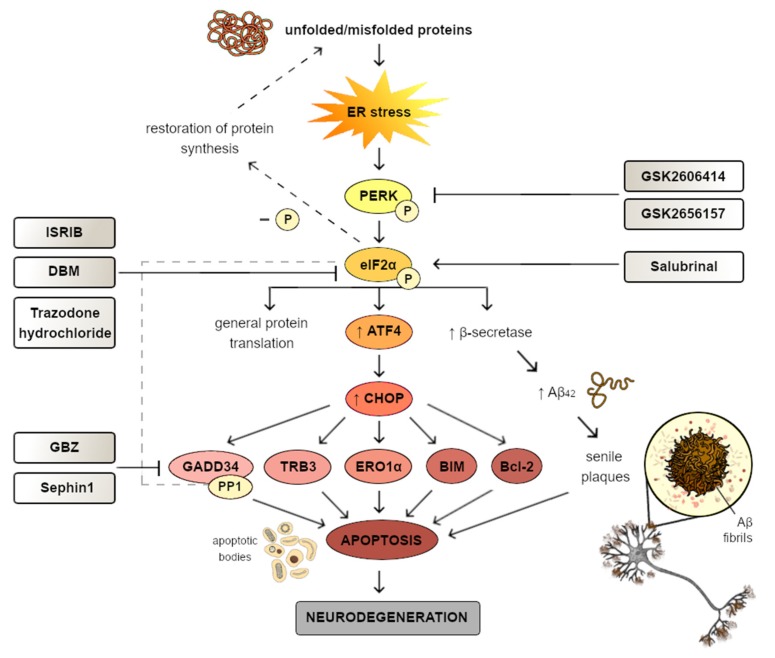Figure 2.
Small-molecule inhibitors of the protein kinase RNA-like endoplasmic reticulum kinase (PERK)-dependent UPR signaling pathway and their targets of action. Numerous studies have suggested that the pathogenesis of neurodegenerative diseases, including Alzheimer’s disease (AD), is correlated with the accumulation of misfolded and unfolded proteins, which may directly or indirectly trigger endoplasmic reticulum (ER) stress conditions and activation of the PERK-dependent unfolded protein response (UPR) signaling pathways. The upregulation of specific mechanisms related to the PERK branch of UPR signaling and AD pathogenesis is indicated by arrow, downregulation by inhibiting line, whereas GADD34-mediated dephosphorylation of eIF2α in a negative feedback loop by dotted arrow. Under mild-to-moderate ER stress conditions, UPR has a pro-adaptive role, whereas severe or long-termed ER stress conditions directly evoke shift of the UPR toward its pro-apoptotic branch, leading to neurodegeneration. The newest data have reported that pharmacological modulation of the PERK-dependent branch of the UPR signaling pathway via small-molecule inhibitors may constitute a novel treatment strategy against neurodegeneration.

